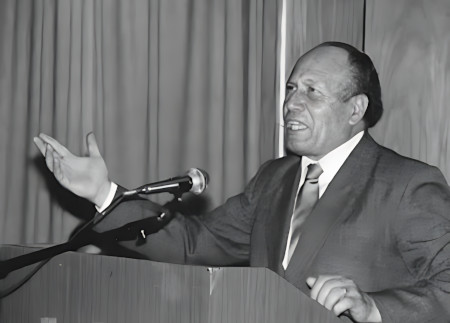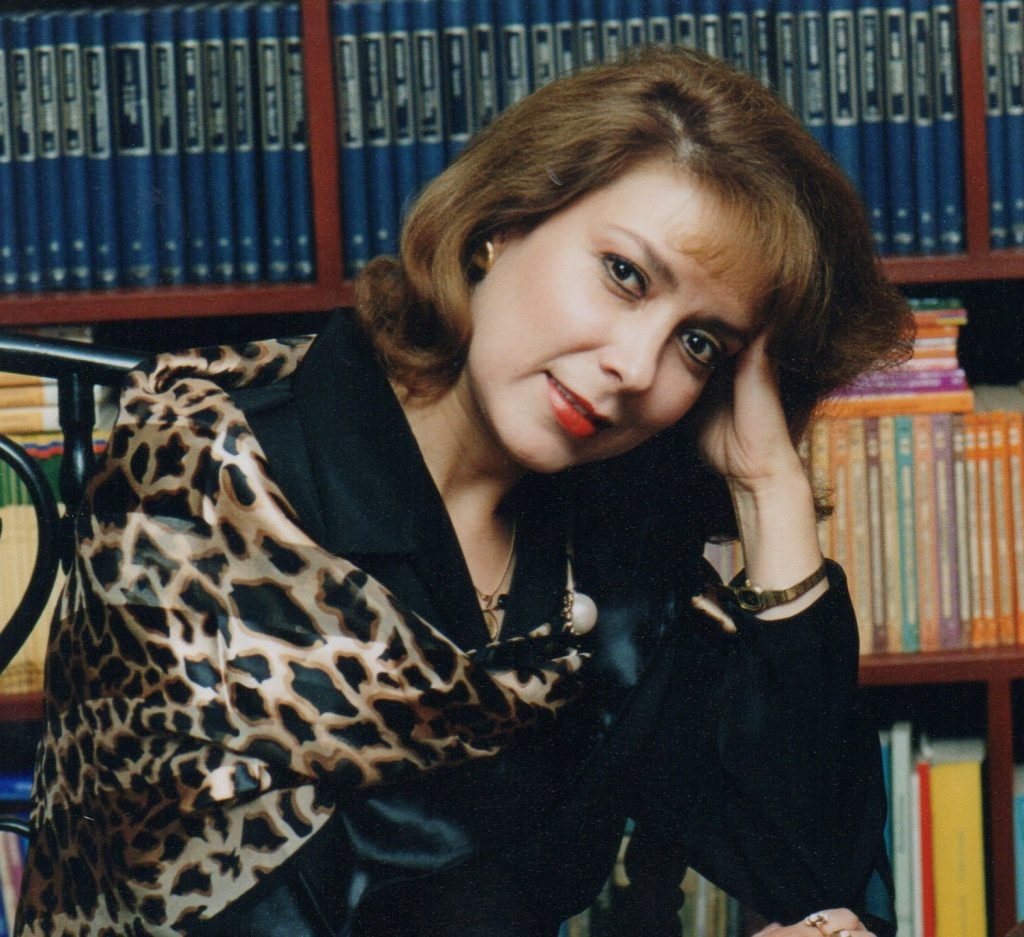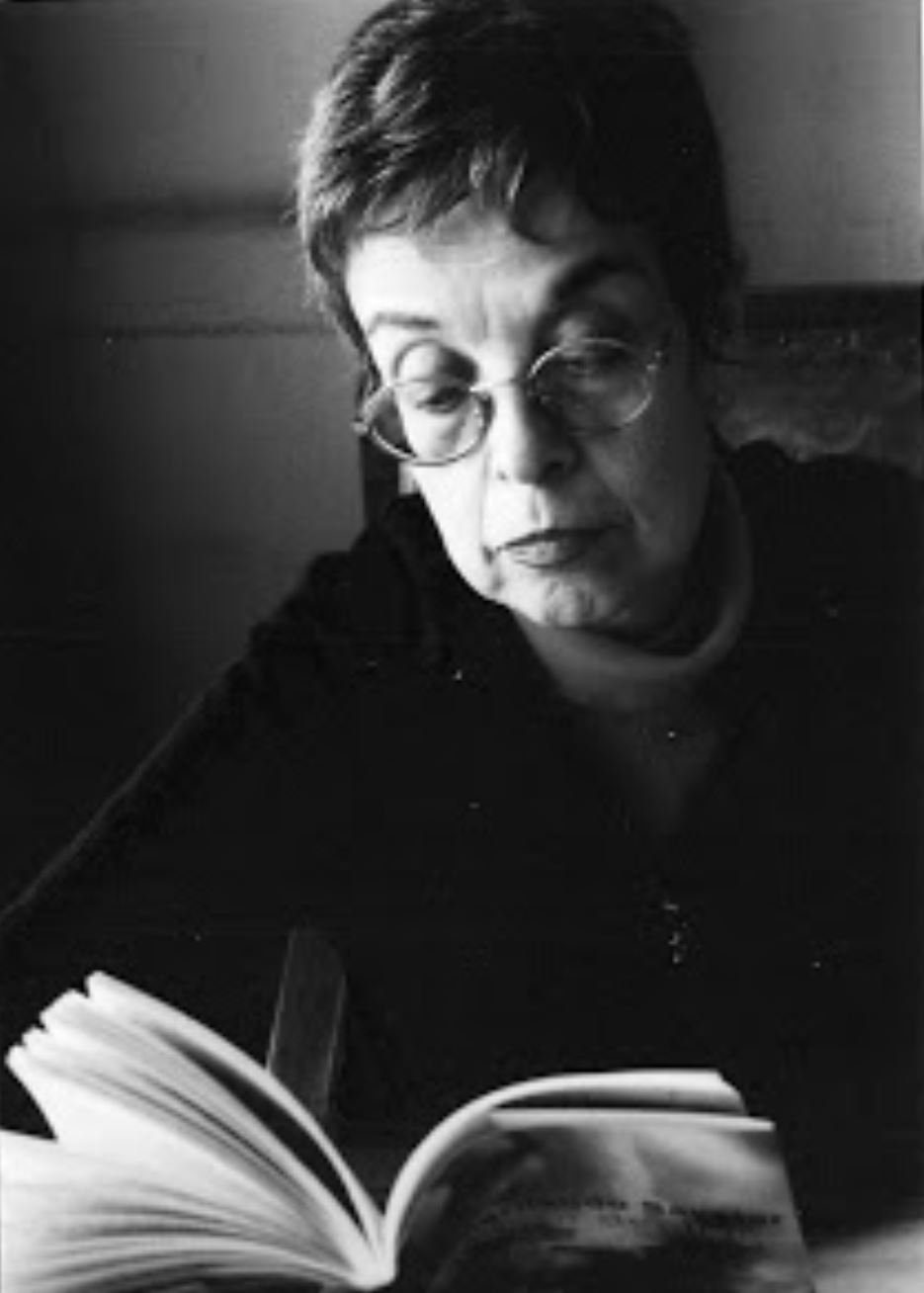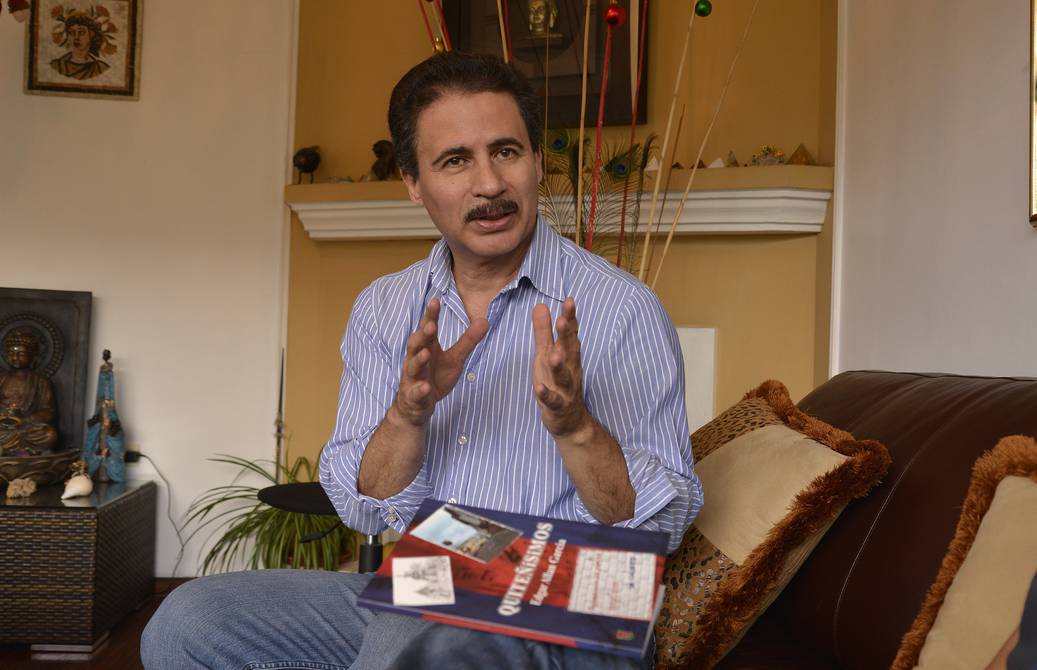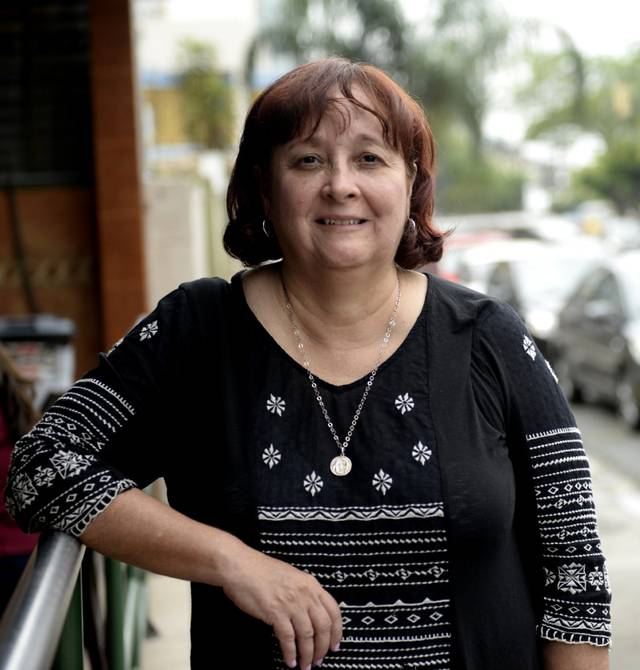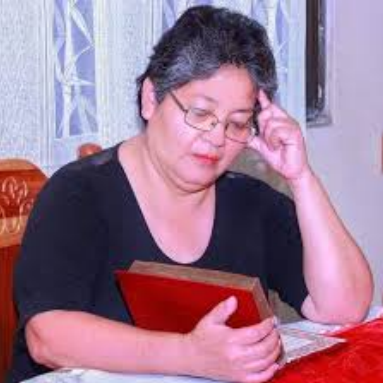María Antonieta Humeres de Doring (Chile) was a Chilean poet known for her deeply introspective and lyrical work. She gained significant recognition in Ecuador after winning the prestigious Ismael Pérez Pazmiño Prize in 1964 for her poetry collection Población de atardeceres (Population of Sunsets). Her poetry, often centered on themes of existential reflection, time, and the feminine experience, was featured in the anthology Poesía ecuatoriana del siglo XX. Although she was Chilean by birth, her literary success in Ecuador led to her frequent association with the Ecuadorian poetry.
Continue reading “María Antonieta Humeres”Category: Poets
Waldo Calle Calle
Waldo Calle Calle (Cojitambo, August 25, 1951) is an Ecuadorian poet, essayist, and diabetologist. He has lived in Cuenca for many years where he practices medicine and has worked as a professor at the University of Cuenca. In 1977 he was awarded First Prize in the Ismael Pérez Pazmiño National Poetry Contest for his poem Juantodonada. His poetry books include: “Los días del antihombre” [The Days of the Anti-Man] (1978) and “Antologia de los perros” [Anthology of the Dogs] (2003). His poems and stories have also been included in several locally published anthologies in Cuenca.
Continue reading “Waldo Calle Calle”Manuel Zabala Ruiz
Manuel Zabala Ruiz (Riobamba, 1928) is an Ecuadorian poet and university professor. He was a member of the “Caminos” group. He won several Ecuadorian national prizes, including First Prize of the Ismael Pérez Pazmiño Poetry Contest for Los cuadernos del salmista. His published poetry books include: La risa encadenada (1964), Teoría de lo simple (1970), Rumbo al otoño (1986), Obra poética completa (1998) and Poesía junta (2006).
Continue reading “Manuel Zabala Ruiz”Jacqueline Costales
Jacqueline Costales de Torres, born Lourdes Jacqueline Costales Terán (Riobamba, 1964) is an Ecuadorian poet, writer, columnist, and former university professor. She has published 5 poetry books, a book of short stories, and a nonfiction book. She has also written for the regional magazine Panorama and the Riobamba newspaper La Prensa as a columnist. She is a member of the House of Ecuadorian Culture of Chimborazo, the “Grupo América” Cultural Corporation, and the Association of Contemporary Writers of Ecuador, where she serves as vice president. The National Assembly of Ecuador honored Jacqueline Costales for her contributions to Ecuadorian culture and education by bestowing upon her the “Doctora Matilde Hidalgo de Prócel” Award in 2020. She’s the founder and director of the Casa Cultural Somos Arte Foundation, a non-profit organization with the mission of making art accessible to people of all social classes.
Continue reading “Jacqueline Costales”Yuliana Ortiz Ruano
Yuliana Ortiz Ruano (Limones, Esmeraldas, 1992) is an Ecuadorian poet and writer. She has had several of her poems published in both printed and digital magazines. Among her published poetry books are “Sovoz” (2016), “Canciones desde el fin del mundo” (2018), and “Cuaderno del imposible retorno a Pangea” (2021). In 2017, Yuliana received an honorable mention at the international poetry festival “Poetry in Parallel Zero.” She was also awarded the National Literature Award in 2021 in the poetry category for her remarkable contributions to the field. Currently, she serves as an editor and anthologist for the online poetry magazine Cráneo de Pangea. Yuliana’s debut novel, “Fiebre de carnaval” (Carnival Fever), was published in 2022 and received critical acclaim. In 2023, she won the prestigious IESS First Novel Prize in Italy, which recognizes the best first novel by a Latin American author under the age of 35. As part of this award, her book will be translated into Italian. Her novel was also recognized as one of the recommended books of 2022 by the Spanish edition of Vanity Fair magazine and received high praise from author Mónica Ojeda, who named it her favorite novel of the year. Currently, Yuliana Ortiz Ruano resides in Guayaquil, Ecuador.
Continue reading “Yuliana Ortiz Ruano”Gonzalo Ramón
Gonzalo Ramón (Guayaquil, 1912 – Unknown) was an Ecuadorian novelist, poet, essayist, and literary critic. He is best known for his novels Tierra baldía (1957, Barren Land), which exposed the exploitation of Afro-Ecuadorians in banana plantations, Clavellina (1971, Little Carnation), which won a prize from the National Union of Journalists, and Guandal (1976, Swampland), which earned the National Literature Award. Ramón also wrote literary criticism, most notably on the Ecuadorian poet César Dávila Andrade, and his long poem Elegía de la creación, carta a mi hija (1965, Elegy of Creation, Letter to My Daughter) presents an ambitious exploration of the origins and evolution of life.
Continue reading “Gonzalo Ramón”ben aki
ben aki, pseudonym of Rodrigo Jurado (Ambato, Ecuador, 1967) is an Ecuadorian poet, writer, and university professor. He has published 7 poetry collections, including: “Tesis” (2006), “Telares” (2014), “Cartas desde la cárcel” (2015), “Inicios absolutos” (2016), “Querido señor presidente” (2017), “La piel que habito” (2018), and “Poemas para la tarde y el después” (2019). In 2021, ben aki published a biographical novel about his maternal grandmother, María Agripina Cruz Torres, entitled, “María Agripina.” He currently resides in Ambato where he is Professor of Communication and Academic Writing at the Catholic University of Ecuador.
Continue reading “ben aki”Victoria Tobar
Victoria Tobar Fierro (Ambato, 1943) is an Ecuadorian poet, writer, and literary critic. In 1983 her first poetry book, “Y de repente” was bestowed the “Juan León Mera” award by the municipality of Ambato. She has written 5 poetry books and her poems have been selected for inclusion in various anthologies of Ecuadorian and Latin American poetry. In 2020 a compilation of her poems was published in a book entitled “Inmensos sentidos” by the publisher El ángel editor.
Continue reading “Victoria Tobar”Mireya Romero Plaza
Mireya Romero Plaza de Bravomalo, aka Mireya de Bravomalo or Mireya Romero y Cordero (Quito, January 29, 1929 – July 2014) was an Ecuadorian poet, novelist, and feminist. In 1953, at the age of 23, she published a novel entitled, “La pena fuimos nosotras,” which was read by many women and that put her in the forefront of feminism in Ecuador in the 50’s. In 1956, she published a poetry book entitled, “Heliofina,” prologued by poet Francisco Granizo Rivadeneira. She sometimes used the pseudonym Marga del Río.
Continue reading “Mireya Romero Plaza”Aida Borja Álvarez
Aida Borja Álvarez was an Ecuadorian historian and poet. In 1959, she released a remarkable collection of poetry titled “Nautilo.” Alongside her poetic endeavors, Aida also delved into nonfiction, producing compelling works such as “El Capitán de los Andes” (1960), a comprehensive two-volume biography chronicling the life of Simon Bolivar. Additionally, she authored “Grecia” (1960), an insightful exploration of Greece’s majestic mountains, its gods, and the people that inhabit its land. Aida’s literary repertoire extended further with “Mi visión del archipiélago” (1963), a captivating book that offered her unique perspective on the enchanting Galápagos Islands.
Continue reading “Aida Borja Álvarez”Enrique Noboa Arízaga
Enrique Noboa Arízaga (Cañar, January 22, 1921 – September 10, 2002) was an Ecuadorian poet and public official who held positions such as Director of Education of Cañar, National Vice President of the House of Ecuadorian Culture, Undersecretary of the Ministry of Culture, among others. His poetry collections include: “Orbita de la pupila Iluminada,” “Ambito del Amor Eterno,” “Biografía Atlántida,” “Las Posadas de Otoño” and “Poética.” He was awarded a “Gold Medal” in the Ibero-American poetry contest in Uruguay, “Capulí de Oro” in Ambato, and First Prize in the “Ismael Pérez Pazmiño” poetry contest, to name a few. He was nicknamed “Oso” [Bear] by his friends due to his corpulent body. Several schools in Ecuador bear his name.
Continue reading “Enrique Noboa Arízaga”Margarita Dager-Uscocovich
Margarita Dager-Uscocovich (Guayaquil, October 31, 1967) is an Ecuadorian fiction writer, poet, and columnist. Her debut novel, “No es tiempo de morir” was published in Spanish in 2018 and in English in 2019. Her second novel “Las queremos vivas” (2021), deals with the global trafficking of women, and has Guayaquil and Charlotte, N.C as settings. Her short stories and micro-stories have been published in Spain, Mexico, Argentina, Uruguay and the United States. Her poems have been published in the online magazine labelmelatina.com. She is a columnist for the Destinos section of the online magazine La Nota Latina in Miami, FL and Revista Latina NC. She currently resides in Charlotte, North Carolina.
Continue reading “Margarita Dager-Uscocovich”Edgar Allan García
Edgar Allan García (Guayaquil, December 17, 1958) is an Ecuadorian writer and cultural promoter. He has 74 books to his credit, including short stories, poetry, novels, biography, nonfiction, essays and children’s literature. His works have been published in Ecuador, Spain, Peru, Mexico and Argentina. His book “Leyendas del Ecuador” is read in primary and secondary schools while his young adult novel “El rey del mundo” was chosen as part of Argentina’s national reading program. His poetry and short stories have also been included in several anthologies, and in 2010 he was included in Jaime García Padrino’s “Great Dictionary of Latin American Authors of Children’s and Youth Literature.” He also serves as the director of Ecuador’s José de la Cuadra National Book and Reading Plan. Some of his stories have been translated into French.
Continue reading “Edgar Allan García”Maritza Cino
Maritza Cino Alvear (Guayaquil, 1957) is an Ecuadorian poet and university professor. She has published 8 poetry collections and a collection of 23 short stories entitled “Días frívolos” [Frivolous Days]. Her poems have appeared in Latin American and Spanish magazines, as well as U.S.-based online magazines. In addition, some of her poetry has been translated into English, Italian and French. Her latest poetry collection “El temblor de los huertos” [The Tremor of the Orchards] was published in 2022.
Continue reading “Maritza Cino”Maria Cecilia Corella
Maria Cecilia Corella Ramírez (Daule, September 9, 1967) is an Ecuadorian writer, poet, and cultural promoter. She has authored five books: “Poesías amatorias,” “Poemas Corellanos,” “La voz de los Daulis,” “Versos caminantes,” and “Daulis.” From 1985 to 2015, she was the editor of La Voz de los Daulis, a literary, historical, and cultural magazine. She hosts a local cultural TV show Viernes de Cultura y literatura on DV Daule Vision. She is presently the president of the Corporación Cultural Daule, whose cultural event, Sofá Cultural, aims to promote Daule’s literature, dance, music, and other local art forms. She is a member of the World Hispanic Union of Writers and the Union of Writers and Artists of Tarija.
Continue reading “Maria Cecilia Corella”
